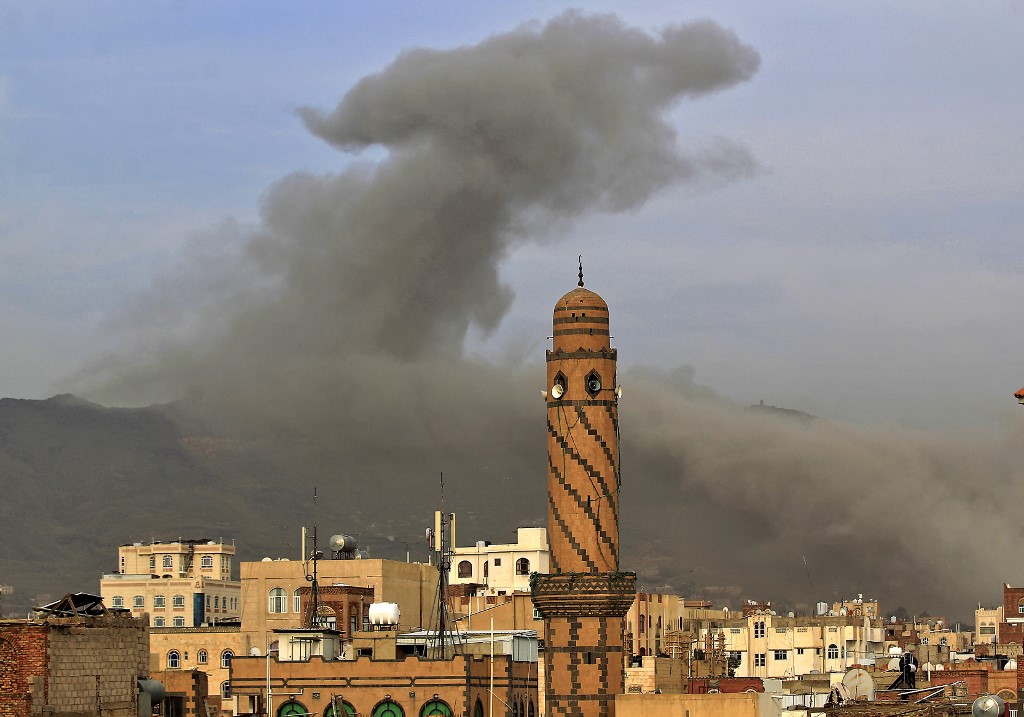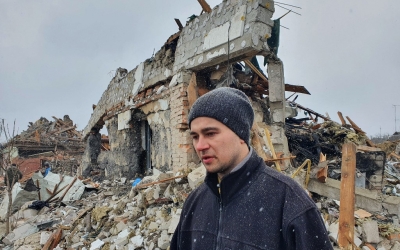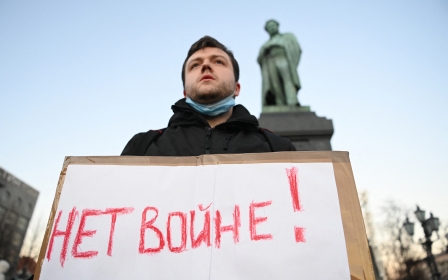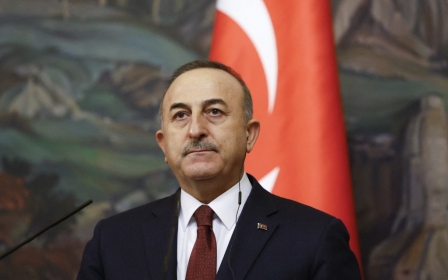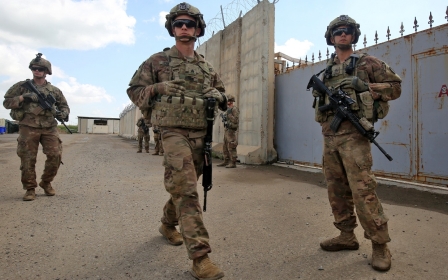Are Russia and Gulf states trading support for wars in Ukraine and Yemen?
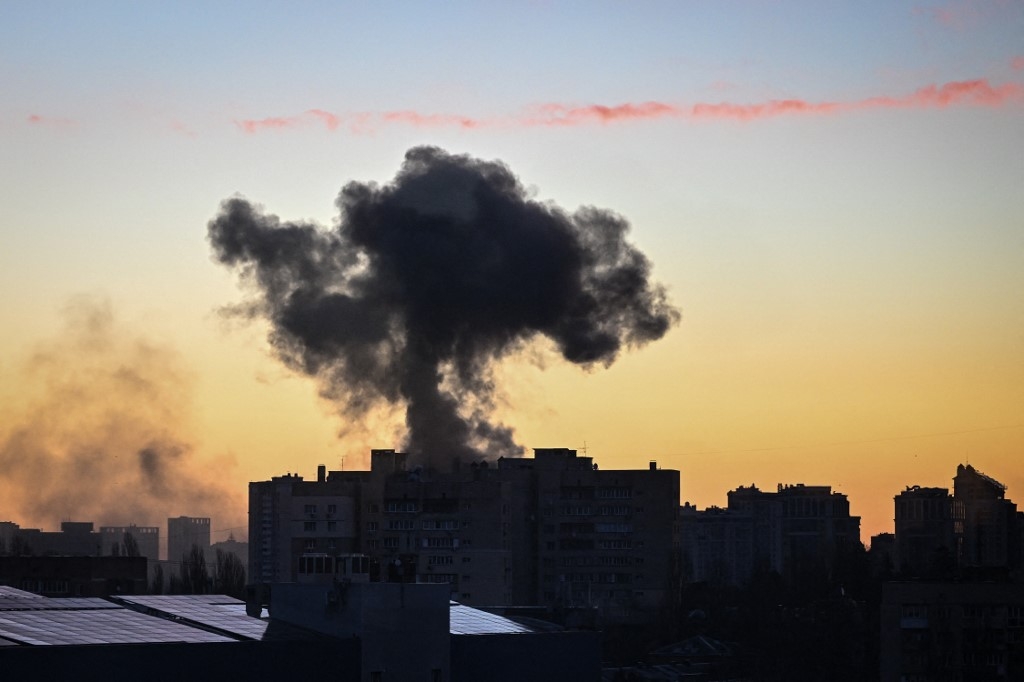
Russia’s invasion of Ukraine has been a worldwide game changer, but in the Gulf region, the diplomatic responses from petro states have been measured. Kuwait and Qatar, which have supported Ukraine since the war began, have used careful language about the invasion, while the Qatari and Emirati foreign ministers have both visited Moscow.
It is likely that the UAE and Qatar will take a more active role, as they have in other regional crises, while Saudi Arabia opts for lower-profile diplomacy and supports Russia in the energy sector. Saudi Crown Prince Mohammed bin Salman recently confirmed his country’s commitment to keep oil prices and production in line with the OPEC+ deal with Russia.
The Russia-Ukraine war - and the Gulf's approach to it - could have repercussions in other theatres of conflict
It is neither possible nor practical to exclude Russia from the global energy market, and Saudi Arabia’s support for the OPEC+ agreement will prevent Russia from being isolated in this regard. Ahead of Russia’s invasion of Ukraine, Qatar had already been asked to increase its LNG supply to Europe, but as the Qatari energy ministry noted, it would be “almost impossible” to replace the volume that had been coming from Russia.
On Monday, UAE's energy minister, Suhail al-Mazrouei stressed that "no producer can substitute Rusia's oil production in energy markets".
Clearly, Gulf countries are not going all out against Moscow in the energy sector. The UAE’s foreign minister has also stressed the importance of keeping global food markets stable, which is particularly vital in Gulf states, where food security is vulnerable and dependent on imports. Russia and Ukraine comprise a quarter of the world’s wheat exports.
Forging closer ties
Russia and the Gulf powers have avoided coming into conflict on a number of regional issues in recent years. When Russia entered the Syrian war in 2015, Saudi Arabia and the UAE had their attention focused elsewhere - on the war in Yemen, launched months earlier in a bid by the Gulf states to contain the Iran-backed Houthi rebels.
In Syria, the UAE has forged closer ties with Russia by rejecting Islamist opposition groups and taking strides to reintegrate Damascus into the Arab fold. And last August, Saudi Arabia and Russia signed a military cooperation deal viewed as an affront to the US, whose failure to support Riyadh’s war on Yemen is closely related to the kingdom’s decision to balance the scales by engaging Russia.
Yet the Yemen war has been extremely costly to the Saudi-led coalition, which has been trying to bring it to an end. Not only has the war drained their resources, it has also failed to contain Iran, which was the primary goal. This failure has undermined the legitimacy of Riyadh and Abu Dhabi in their role as regional powers.
Additionally, the Yemen war has not earned unified support from other Gulf states, where regional tensions have persisted over the prudence of the ongoing assault.
Last month, however, Russia lined up alongside the UAE by supporting its resolution in the United Nations Security Council to extend an arms embargo to all Houthi rebels.
Open dialogue
Diplomats have suggested that Moscow’s position on the Yemen vote might have been the result of a deal with Abu Dhabi on the situation in Ukraine. Late last month, the UAE abstained on a Security Council vote to condemn Russia’s invasion. “We no longer need a green light from America or any other western capital to decide on our national interest,” Abdulkhaleq Abdulla, an Emirati political science professor, told the Financial Times.
Anwar Gargash, an Emirati presidential advisor, has said that “taking sides” in Ukraine would only increase the ongoing violence, and instead advocated dialogue between the warring parties. These positions have created support for Russia in a time of deep global uncertainty.
Qatar has maintained an open dialogue with both Ukraine and Russia, and its participation in the Turkish-led Antalya Diplomacy Forum points to an effort at shuttle diplomacy - which is not surprising, considering Qatar’s foreign-policy emphasis on mediation and soft power.
The policies of Saudi Arabia and the UAE, meanwhile, might be summed up as “supporting those who support us in Yemen”.
Although the Gulf countries have long been allied with the West, it has become clear that they do not have a unified stance on Russia’s role in the Middle East. Non-western powers, including China, India and Russia, have developed close ties with the petro states. Going forward, the Russia-Ukraine war - and the Gulf’s approach to it - could have repercussions in other theatres of conflict, such as Yemen, as the US takes a backseat.
The views expressed in this article belong to the author and do not necessarily reflect the editorial policy of Middle East Eye.
Middle East Eye propose une couverture et une analyse indépendantes et incomparables du Moyen-Orient, de l’Afrique du Nord et d’autres régions du monde. Pour en savoir plus sur la reprise de ce contenu et les frais qui s’appliquent, veuillez remplir ce formulaire [en anglais]. Pour en savoir plus sur MEE, cliquez ici [en anglais].



